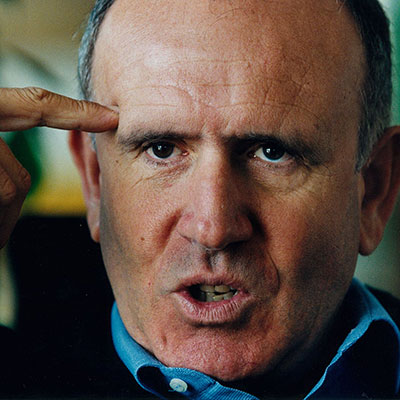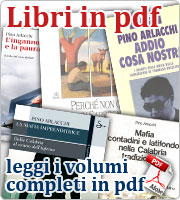European Parliament, Press release
Security and defence, 29-09-2010
Committee : Security and Defence
A strategic partnership with Russia, territorial missile defence and cyber attacks were among the issues discussed by NATO Secretary General Anders Fogh Rasmussen with MEPs and national MPs from the 27 EU Member States at a meeting on Tuesday. The EU civilian mission in Afghanistan and the question of democratic scrutiny over European security and defence policy were also addressed.
Russia could help create a real security architecture from Vancouver to Vladivostok, Mr Fogh Rasmussen told the MEPs and 55 parliamentarians from the 27 Member States at an interparliamentary meeting to discuss the challenges facing the EU common security and defence policy (CSDP) following the entry into force of the Lisbon Treaty.
Mr Rasmussen said NATO's collective defence was "rock solid" and the alliance was seeking to establish a territorial missile defence system.
In response to Vitautas Landsbergis (EPP, LT) and Werner Schulz (Greens/EFA, DE) on Russia, he said he did not think Russian membership of NATO was realistic. However, NATO should develop a strategic partnership with Moscow in areas where security interests were shared, such as in combating terrorism and piracy.
Mr Rasmussen advocated an "overall security agreement" on Turkey and added that NATO would respect the EU's autonomy in decision-making on the CSDP.
The chair of the Subcommittee on Security and Defence, Arnaud Danjean (EPP, FR) said the EU could not "just give in to Turkey every time" and a balanced approach was needed. To his question on civilian capacities, Mr Rasmussen stressed that NATO also should develop "a small civilian capacity", following "the lesson learnt from Afghanistan and Kosovo" but this would not mean any redundant duplication of EU capacities.
Replying to Lisek Krzystof (EPP, PL), the Secretary General emphasised that Georgia would become a member of NATO if it managed to fulfil all the criteria.
Cyber attacks
Tunne Kelam (EPP, EE) and Pino Arlacchi (ALDE, IT) asked about NATO's approach to cyber attacks. Mr Rasmussen said NATO regarded this as a real threat that posed risks to military capabilities too. "Potentially, yes", was his answer to a question by Ana Gomes (S&D, PT), whether NATO's mutual defence clause would be activated in the case of such an attack.
To a question on the Middle East by Ivo Vajgl (ALDE, SL), Mr Rasmussen said it was premature to discuss what would happen if a peace deal were struck. However, if that happened and if the different parties and the UN so requested, the presence of international forces in the region would be needed.
Afghanistan
The EU special representative and head of EU delegation in Afghanistan, Vygaudas Ušackas, also addressed the meeting.
"The most important test of the military strategy comes now", "if we leave now we leave a mess behind us", he told the chamber, listing the most important tasks to be addressed. Increased Afghan responsibility and ownership, the diversification of the economy and rolling back drug production, enhancing women's rights, regional cooperation and the reintegration into the society of former combatants were among the most pressing issues.
Pino Arlacchi (ALDE, IT), who is also Parliament's rapporteur on Afghanistan, called this list an "extremely weak list of intentions" but welcomed the special representative's "more realistic vision" of the role of the EU police force on the spot, that is to focus on building up local civil police forces. The integration of EU efforts into NATO's training programme was important, he added. Thijs Berman (S&D, NL), chair of Parliament's delegation on Afghanistan, said the civil police training should not take place under a NATO umbrella, as this alliance was a military organisation unlike EU's civilian force EUPOL.
Robert Walter, from the UK House of Commons, called for measures to offer Afghan farmers an alternative to poppy growing and prevent trade in narcotics from funding the insurgency.
Cooperation between the European Parliament and national parliaments
In a climate of economic crisis, amid efforts to rationalise public expenditure, national governments tend to cut their defence budgets, said Foreign Affairs Committee chair Gabriele Albertini (EPP, IT). This was happening in a period when the EU had assumed significant new powers in the field of security and defence, he added.
A joint understanding and definition was needed of "permanent structured cooperation" among Member States, a possibility introduced by the Lisbon treaty, contended Leon Kieres from the Polish Senate. Edmondo Cirielli of Italy believed the fragmentation of research and production in the European defence industry needed to be overcome.
Emanuelis Zingeris from the Lithuanian Seimas and MEP Charles Tannock (ECR, UK) stressed that duplication of NATO efforts should be avoided and that CSDP operations should be coordinated with NATO.
MEP Elmar Brok (EPP, DE) underscored that regular exchanges of views on CSDP between EP and national parliaments were essential "so we are not played off against each other".
The end of the Western European Union
Denis Ducarme, representing the Belgian House of Representatives, and Robert Del Picchia from the French Senate stressed that, with the dissolution of the Assembly of the Western European Union in 2011, parliamentary scrutiny over European security and defence issues should be conducted through new methods.
Dinos Vrettos of Greece advocated setting up a specific body gathering national and European parliamentarians, assisted by a secretariat but several participants, including Anne-Marie Meldgaard from Denmark, opposed the idea. Robert Walter (UK) called for a more "proactive" approach than "passive" meetings held twice a year.
Meeting of EP Foreign Affairs Committee, EP Subcommittee on Security and Defence and representatives of EU national parliaments on the challenges facing the Union's Common Security and Defence Policy after the entry into force of the Lisbon Treaty.





 Non sono una persona complicata. La mia vita pubblica ruota intorno a due cose: il tentativo di capire ciò che mi circonda, da sociologo, e il tentativo di costruire un mondo più decente, da intellettuale e militante politico.
Non sono una persona complicata. La mia vita pubblica ruota intorno a due cose: il tentativo di capire ciò che mi circonda, da sociologo, e il tentativo di costruire un mondo più decente, da intellettuale e militante politico.




